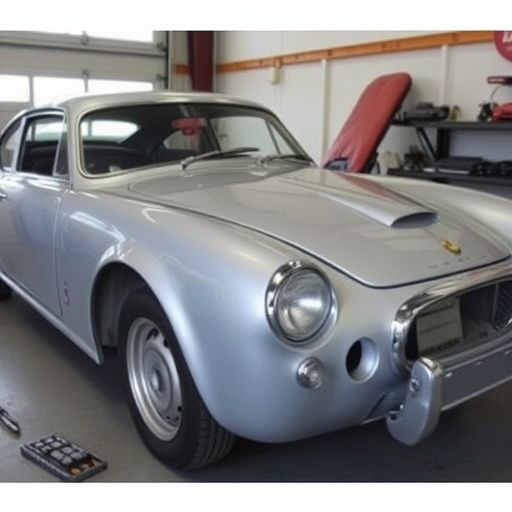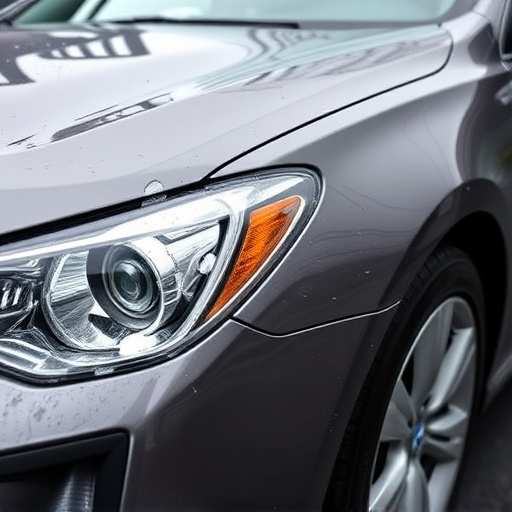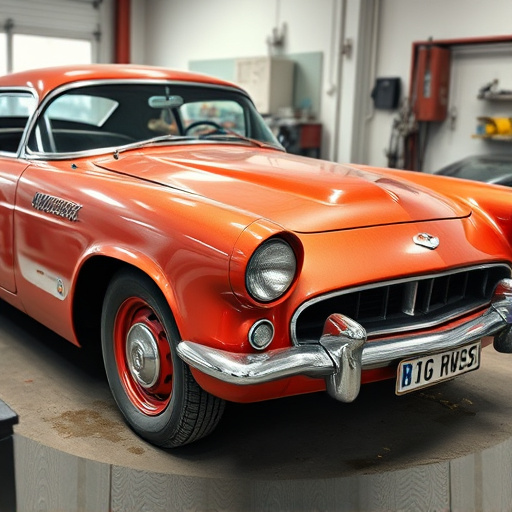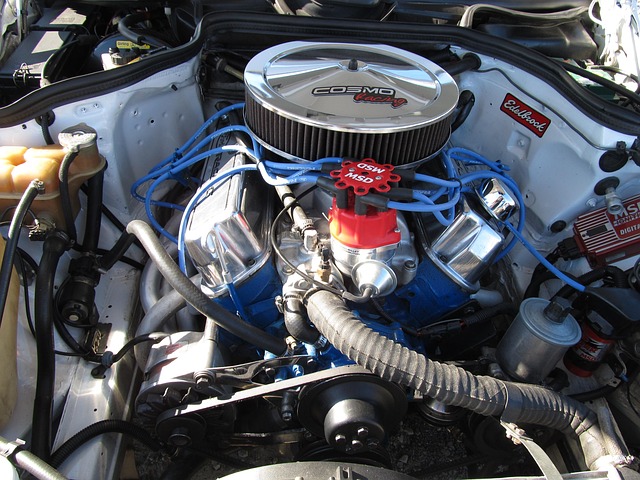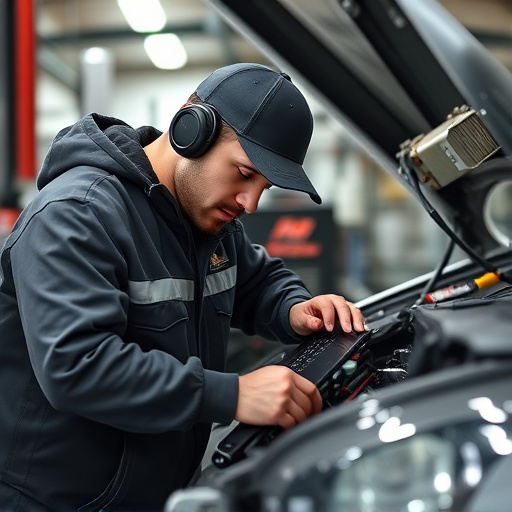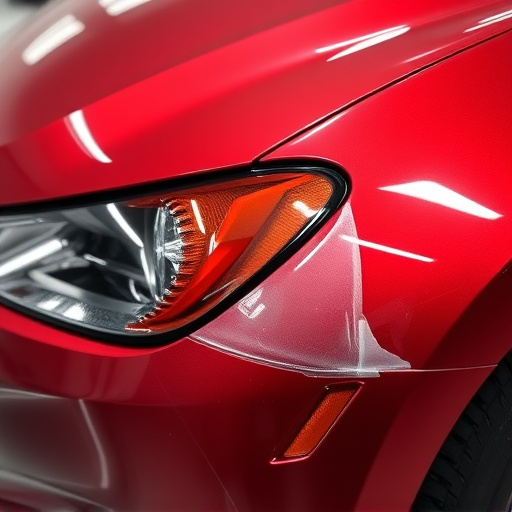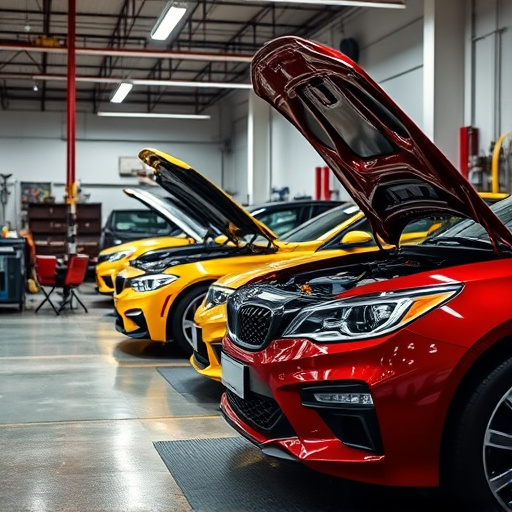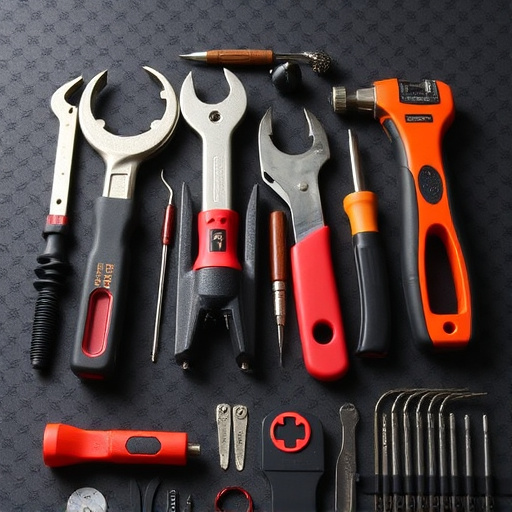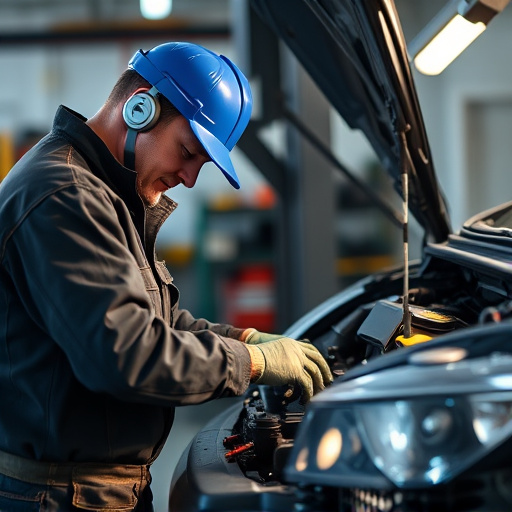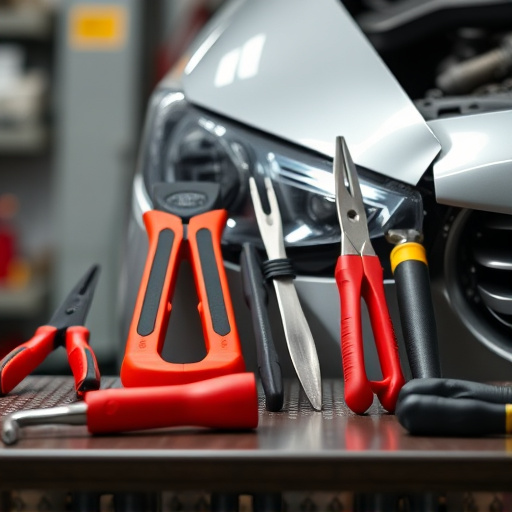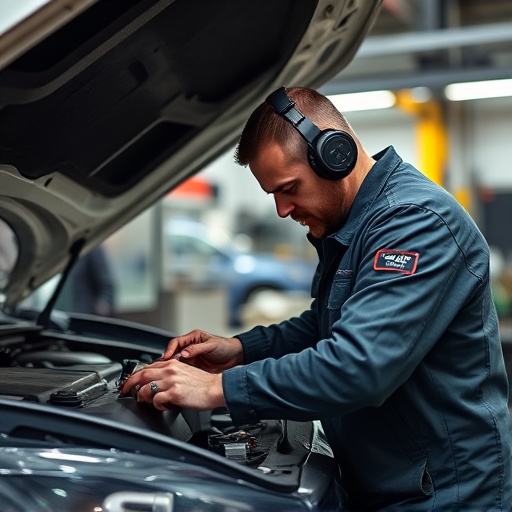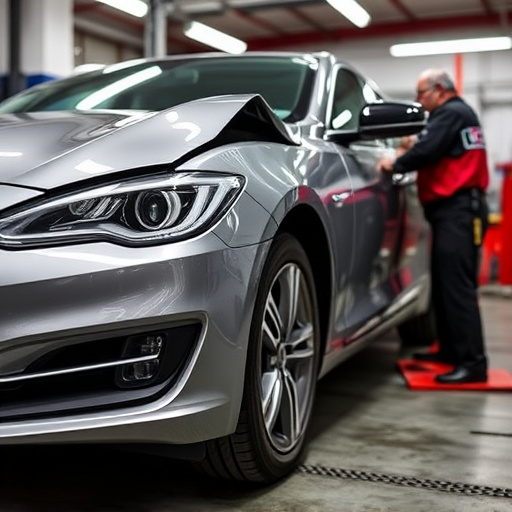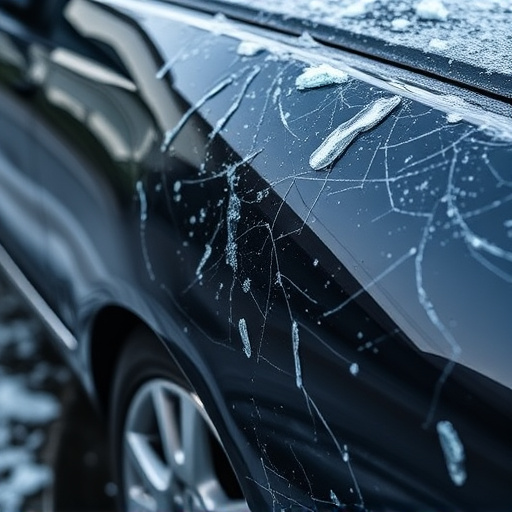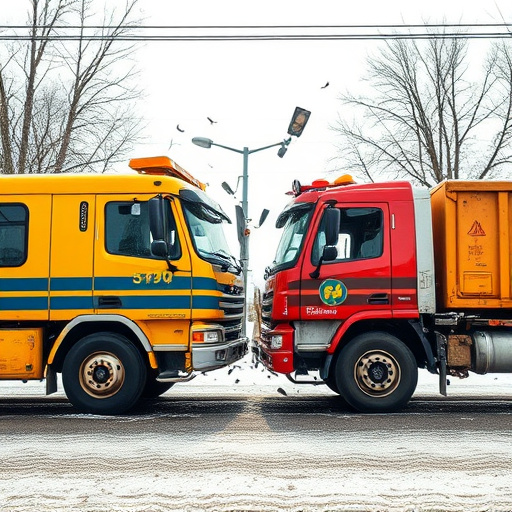Specialty collision hardware, including body panels, frame straighteners, and painting equipment, is crucial for auto body shops doing complex repairs. These tools enable high-quality car paint work and enhance overall service capabilities. From elevation aids to finishing gear, each piece plays a specific role in efficient bodywork. Understanding these specialized products empowers professionals to choose the right hardware for safe, successful repairs, while investing in quality tools boosts accuracy, speed, satisfaction, and customer retention.
In today’s automotive industry, understanding specialty collision hardware is essential for efficient vehicle repair and safety. This article delves into the basics of this unique equipment, offering a comprehensive guide on common types, from absorbent mats to impact walls. We explore selection factors, best practices, and expert tips to help professionals navigate and optimize their choice of specialty collision hardware. Discover how these tools enhance work efficiency and vehicle protection.
- Understanding Specialty Collision Hardware Basics
- Common Types: From Absorbent Mats to Impact Walls
- Selecting Hardware: Factors and Best Practices
Understanding Specialty Collision Hardware Basics
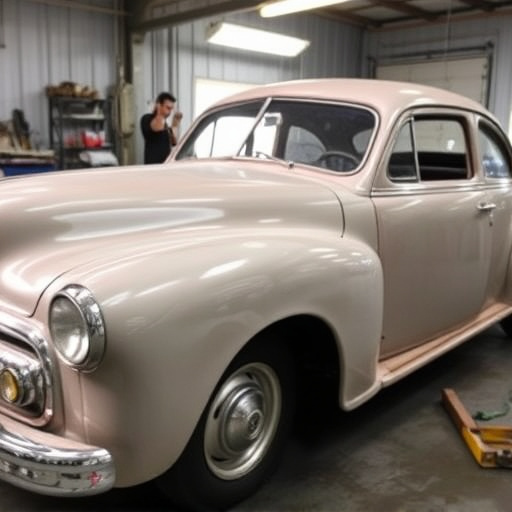
Specialty collision hardware refers to specialized equipment and tools designed to handle unique or complex repairs in auto body shops. These are essential for achieving precision and quality in car bodywork services, especially when dealing with intricate car paint repair processes. Every auto body shop may not require all types of specialty hardware, but having a range of these tools can significantly enhance the capabilities of the technicians.
Understanding these basics is crucial for anyone involved in the car paint repair process. From precision body panels and frame straightening machines to specialized painting equipment, each tool serves a specific purpose. For instance, a mechanical lift or a floor jack is used to safely elevate vehicles during repairs, while sanders and polishers help in achieving the perfect finish. These hardware types are game-changers for efficient and effective car bodywork services.
Common Types: From Absorbent Mats to Impact Walls
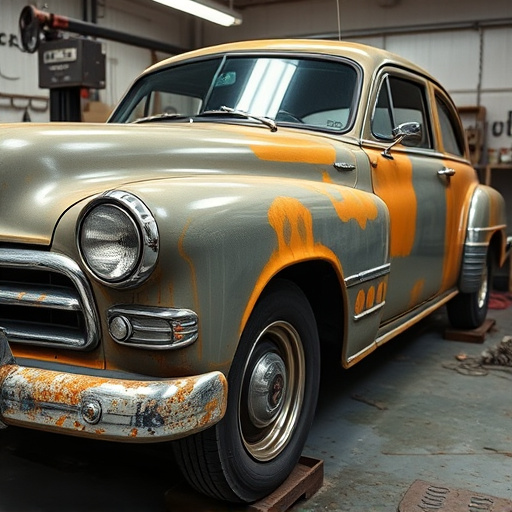
In the realm of specialty collision hardware, a wide array of products caters to diverse needs within the auto body repair and car bodywork services industry. From simple yet effective absorbent mats designed to contain spills and debris during the meticulous process of car collision repair, to robust impact walls that offer protection in high-impact areas, these tools are integral to ensuring safety and efficiency.
Each type serves a unique purpose, enhancing the overall quality of auto body repair. Absorbent mats trap liquids and dust, maintaining a clean workspace, while impact walls safeguard personnel and equipment from sudden forces during collision reconstruction. Understanding these common types of specialty collision hardware is key for professionals in the field, enabling them to choose the right tools for specific car bodywork services tasks and ultimately contributing to successful and safe repairs.
Selecting Hardware: Factors and Best Practices
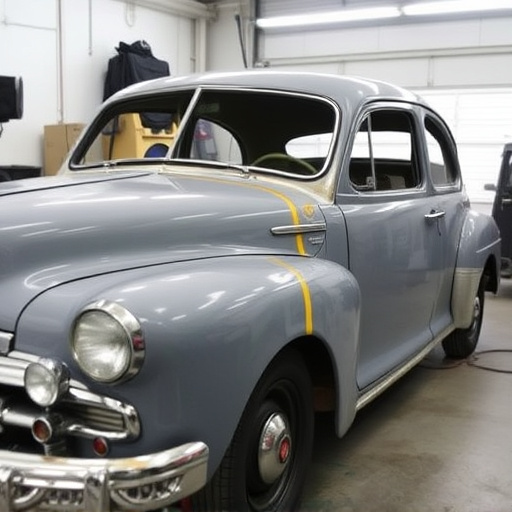
When selecting specialty collision hardware for your auto collision center or tire services, several factors come into play. It’s crucial to consider not just the immediate needs of the repair process but also long-term efficiency and cost-effectiveness. The type of hardware – from impact wrenches and rivet guns to specialized welding equipment – should align with the types of repairs your shop commonly handles. For instance, a bustling auto repair near me might require a broader range of tools than a smaller facility.
Best practices dictate a thorough assessment of your existing inventory, staff skills, and typical projects. This evaluation helps in making informed decisions when purchasing new hardware. Remember that investing in high-quality, industry-specific tools can significantly enhance the accuracy and speed of repairs, ultimately improving customer satisfaction and retention. Moreover, keeping up with technological advancements in specialty collision hardware ensures you offer cutting-edge services to your clients.
Specialty collision hardware plays a crucial role in enhancing safety and mitigating damage within various environments, from automotive workshops to sports facilities. By understanding the diverse range of options available, including absorbent mats, impact walls, and more, businesses can make informed decisions to protect both their assets and individuals. When selecting hardware, considering factors like material durability, installation ease, and specific application requirements is essential for achieving optimal results.
